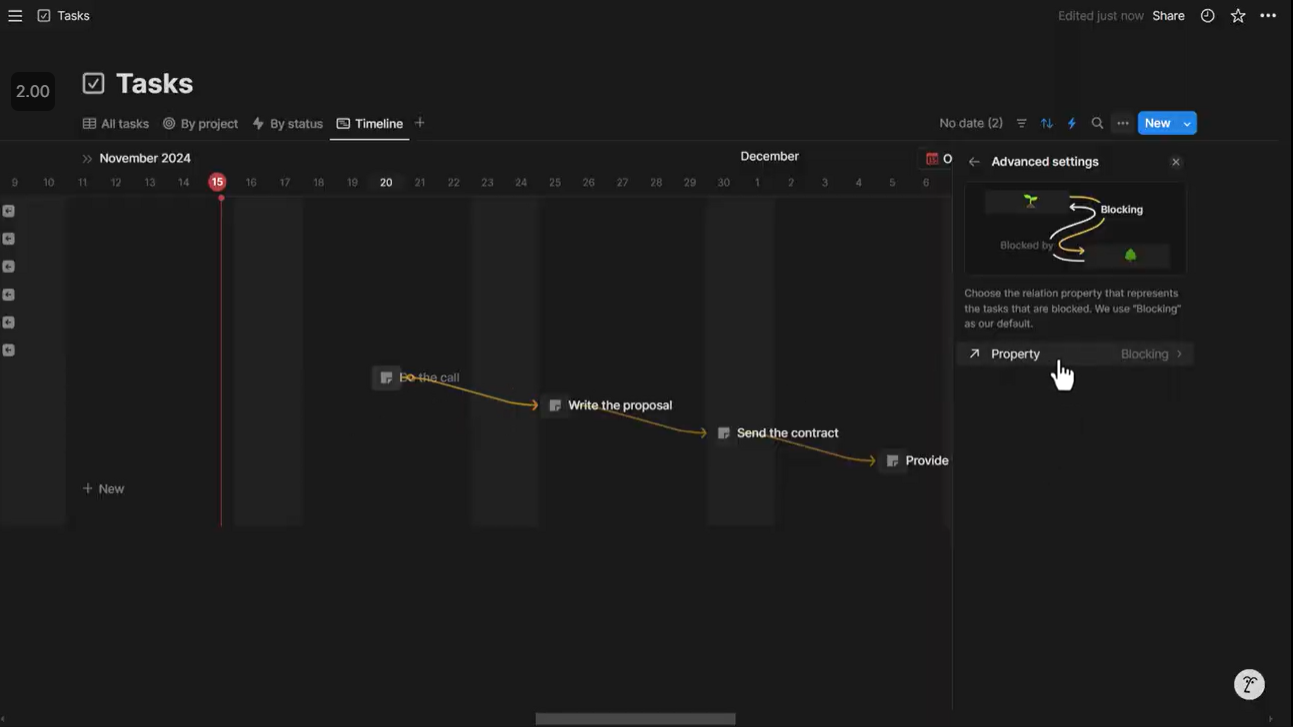How to create an automated project schedule with shifting dependencies in Notion
Many projects follow a template structure—containing both predetermined tasks known upfront and flexible components unique to each project. Using Notion Automations, we can create these pre-defined tasks with dynamic dates and durations, as demonstrated in the video above.
So, in your project management system, it can be useful to:
Create templates (a set of predefined tasks) for different project types
Adjust the entire project timeline when specific phase or task dates shift
For example, when I collaborated with an architecture and interior design firm, I saw how their projects involved numerous moving elements. These projects could span multiple years, depending on their complexity and scope of services.
Specific phases and tasks must occur at predictable dates and durations throughout a project's lifetime. However, these timelines aren't always followed due to the complex nature of projects and the multiple stakeholders involved. This is why we need a project management system that balances pre-defined automation and flexible changes.
What are dependencies in Notion
This is where dependencies come into play. In any Notion database, you can enable Dependencies through the three-dot menu (next to the "New" button) by selecting "Customize [your database name]." Then, in "Advanced settings," choose the "Blocking" property to display dependencies.
Dependencies in Notion are only a visual and functional feature—they don't prevent "blocked" tasks from being edited or marked as complete.
The “Advanced settings” dependencies menu allows you to choose which property to use for visualizing dependencies on the timeline. Select the “Blocking” property.
How to set and shift dates automatically in Notion
After enabling dependencies in a Notion database, you can customize how they function. You can choose to: never shift dates of dependent items when a date changes, shift dates only when dependent items' dates overlap, or always shift dates when changes occur.
With dependencies enabled and your database in timeline view, you can test moving items forward or backward in time to see how dependent items adjust based on your chosen date-shift setting.
Project fulfillment is fundamental to your business’ existence, whether you're an architecture firm, marketing agency, or product-based company. Clear workflows that balance flexibility with precision can enhance your execution speed and quality, improve client satisfaction, and bring peace of mind—knowing that all your tasks are properly documented and tracked in your system.
Featured products
Similar Articles
Affiliate Links
Do you work at a startup? Get 3 months of Notion Plus for free, plus unlimited AI. Visit https://www.notion.so/startups, select Simone Smerilli as an affiliate partner in the drop-down list, and enter the unique code SimoneSmerilliXNotion at the end of the form.
Build your web forms with Tally (integrates natively with many tools)
Get one free month on the pro plan in Make (automation software)

